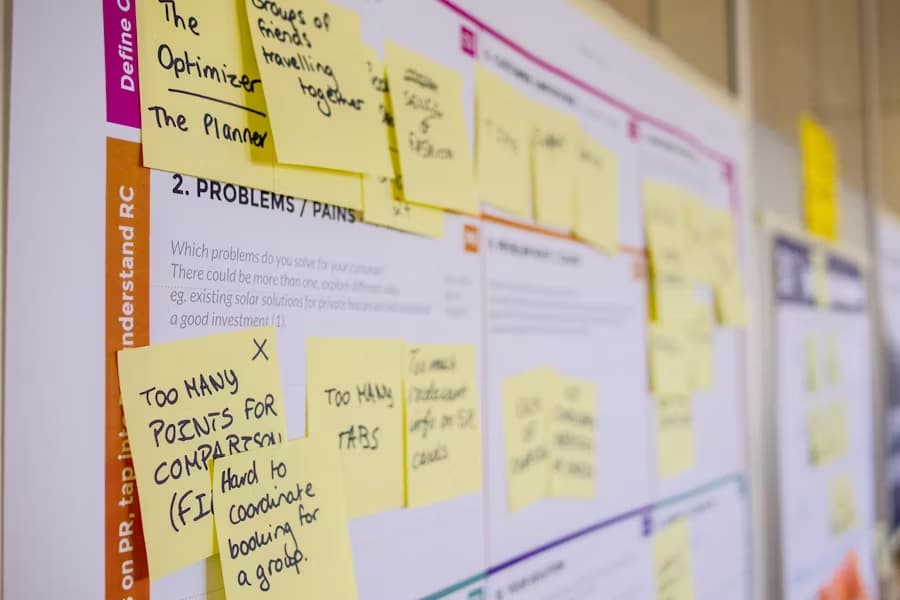Time management is one of the most popular terms in the world of personal effectiveness. Books, courses, webinars and trainings offer a plethora of methods and techniques that promise to make your life more organized and productive. However, despite all of this information, many people continue to struggle with time pressure. Why does this happen? Perhaps it’s not all about time management, but rather how we prioritize our time. This is especially true in areas such as choosing entertainment platforms such as CasinosFueraDeEspana, where users are faced with multiple options and require a clear understanding of their goals and preferences in order to choose and use their time effectively.
Time management as a myth
Before delving into the details, let’s understand what is meant by time management in general. Usually, this term is understood as a set of methods that allow you to use time more efficiently. However, many of us face a situation when no single technique works: to-do lists grow, but the feeling that time is wasted does not disappear. This may be a sign that time management is not solving the underlying problem – the problem of prioritization.
Time management alone cannot solve the problem of lack of time. All it does is help you use the available resources more efficiently. But if your priorities are not properly prioritized, no time management method will be successful.
Why priorities are more important than time
The real issue isn’t how much time we have, but how effectively we use it. We all encounter situations where time seems to be running out, and the pressure builds. But it’s essential to recognize that it’s not about how many hours we have; it’s about where we direct our focus and energy. By concentrating on what truly matters, we not only boost our productivity but also experience a sense of fulfillment and accomplishment in our work.
Mastering Effective Prioritization
To manage time effectively, the first step is understanding what is truly important and what is secondary. Here are a few strategies to help with prioritization:
1. Making a Task List
One of the simplest and most effective methods to determine your priorities is to write down all your tasks. Once you see everything laid out, it becomes easier to identify which tasks should be tackled first. This helps you avoid feeling overwhelmed and ensures you’re focusing on what matters most.
2. Using the Eisenhower Matrix
The Eisenhower Matrix is a powerful tool to help you categorize tasks based on urgency and importance. Split your tasks into four categories:
- Important and Urgent: These are tasks that require immediate attention and align with your goals.
- Important but Not Urgent: These are long-term tasks that will have a significant impact, but they can be scheduled for later.
- Urgent but Not Important: These tasks demand attention but don’t contribute much to your long-term success. Consider delegating them or handling them quickly to clear space.
- Not Urgent and Not Important: These tasks can be minimized or eliminated from your to-do list entirely, as they provide little value.
3. Evaluating Long-Term and Short-Term Goals
Understanding the difference between tasks that contribute to your long-term goals and those that are simply distractions is crucial. Long-term goals tend to require more strategic thinking, while short-term tasks often focus on immediate outcomes. By prioritizing actions that support your bigger vision, you ensure that your daily efforts align with your ultimate objectives.

How to prioritize: secrets of successful people
Proper prioritization is the basis of success in any area of life. Successful people know how to prioritize important tasks and achieve their goals. Here are a few habits that will help you prioritize properly:
- Put long-term goals above short-term goals
The main focus of successful people is always on long-term goals. They realize that short-term tasks can be distracting, but only those actions that contribute to the realization of their ambitious plans are important. Prioritize your priorities so that each day brings you closer to your global goals.
- Don’t be afraid to say no
One of the most important aspects of a successful life is the ability to say no to things that don’t align with your goals. Saying “no” to unimportant tasks and projects frees up time for things that have real value. This helps you avoid overload and keep your focus on what’s important.
- Delegate tasks
Delegating tasks is a key habit of successful people. Instead of doing everything yourself, it is better to delegate some tasks to others. This frees up time for more important things and allows you to focus on what really gets you closer to success.
- Review your priorities regularly
Life and circumstances change and it is important to review your goals and objectives from time to time. Adapting regularly helps you stay flexible and focused on relevant goals, which is especially important when things are changing rapidly. Constantly check your priorities to keep moving in the right direction.
Mistakes in prioritization
Improper prioritization can significantly reduce your productivity and lead to wasting time on unimportant tasks. Here are some common mistakes to avoid:
- Task overload
When you try to accomplish too many tasks in a short period of time, you lose focus and can’t concentrate on the really important things. This leads to fatigue and lower quality of work. It is important to realize that multitasking often worsens the result instead of improving it. Prioritize your tasks so that you focus on key tasks rather than getting bogged down in numerous minutiae.
- Lack of a clear goal
If you don’t have a clearly defined goal, you risk finding yourself performing tasks without a clear strategy. This creates a sense of clutter and reduces motivation. Without a clear understanding of what you want to achieve, it’s easy to get caught up in “chasing illusions”, doing tasks that don’t lead to progress. Formulating specific goals and reviewing them regularly will help you stay focused.
- Ignoring important tasks
It is not uncommon for us to put off important but difficult or unpleasant tasks, preferring to do something easier and more enjoyable. This can lead to an accumulation of unresolved problems that eventually become even more difficult. Often these things take more time and effort if they are put off. To avoid this mistake, learn to tackle difficult tasks first before they become too burdensome.
Conclusion
Time management is not just the art of time management, it is the art of proper prioritization. It’s not how much time you have, but how you use it that matters. Prioritize, focus on long-term goals and review your plans regularly. Then you can maximize your efficiency and experience real productivity in your life.
Remember that time management is not magic, but practice. Time management starts with the right priorities, and this is the only way to really change your life.


